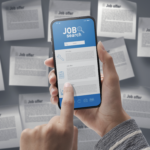Group Income Protection (GIP) is more than a financial payout to an employee unable to work due to illness or injury. Rehabilitation and wellbeing support alongside many policies can prove highly valuable to employees — as soon as their employer identifies they are struggling.
But the best time to reach out for support from your GIP provider isn’t when an employee’s claim is expected to start payment. It’s long before that, so the business and the employee have ample chance to benefit from expert guidance designed to help the employee return to health and work. Plus, given assessing a claim often requires an individual’s medical records from the NHS, early notification provides ample time for the NHS to provide this at a time when it is overstretched.
1. Share the load
HR professionals are strained with so many new priorities in today’s uncertain climate, such as cost-of-living support, retention issues, hybrid working and a host of other employee concerns.
Helping an employee struggling at work or signed off sick can be a taxing process for a HR team who may not be well-trained to support employees in these circumstances.
Informing your GIP provider as soon as you notice an employee could benefit from extra support lets a team of experts step in. Let your GIP provider offer that valuable expertise to an employee in need, with support from physiotherapists, occupational psychologists, nurses and more.
2. Current climate: the cost of living and a strained NHS
The last thing someone on long-term sick leave wants to worry about is a delay in receiving their benefit payment. That’s particularly crucial today with the cost-of-living crisis. Every day, week or month an employee is not receiving an income matters even more when prices are rising rapidly and the real value of savings they may use to support themselves is shrinking.
Plus, GIP providers need supporting information for most claims — including medical evidence. Although providers commonly pay administration costs to GP surgeries, with an NHS under strain, particularly in primary care, where most patients’ medical records are held, this is taking longer than ever to receive.
The sooner your GIP provider can request this the better to ensure a speedy payout on accepted claims. In our experience as a GIP provider, the ideal time to notify about a potential claim is between 8 and 12 weeks of an employee’s first reported absence.
3. A stitch in time
The earlier you inform your GIP provider of any issues an employee may be facing, the better the outcome for everyone.
GIP policies have what’s called a ‘deferred period’. This is the length of time an individual must be out of work before the policy kicks in and begins paying a claim —typically 3 months or longer. In 2022, when we were notified about an employee who was unwell during the policy’s deferred period, their return-to-work success rate was 26 percentage points higher than for employees where we’re only told about the absence at the point of claim.
And the ABI recently showed that 94% of employees return to work when insurers are notified of absence within the first 4 weeks.[1]
4. Business benefits
For the employer, telling their GIP provider early — as soon as an employee is struggling, which could even be before an initial absence ever happens — increases the likelihood an employee can return to work. It can also reduce the risk of sickness absence entirely.
Lowering the chances of sickness absence or improving the chance of a successful return to work can ease difficulties caused by absent staff, such as business disruption, reduced productivity and increased pressure on remaining workers.
5. Healthier workforce
Workplace wellbeing services are highly valued by employees. Employers offering them can see productivity gains, as well as find it easier to recruit new staff and retain existing valued colleagues.
As well as rehabilitation services, most GIP providers also offer preventative wellbeing support. All you need to do is engage early and ask. Good business practises can pre-emptively tackle many common workplace concerns.
[1] 94% of employees return to work when insurers are notified of absence within the first 4 weeks









